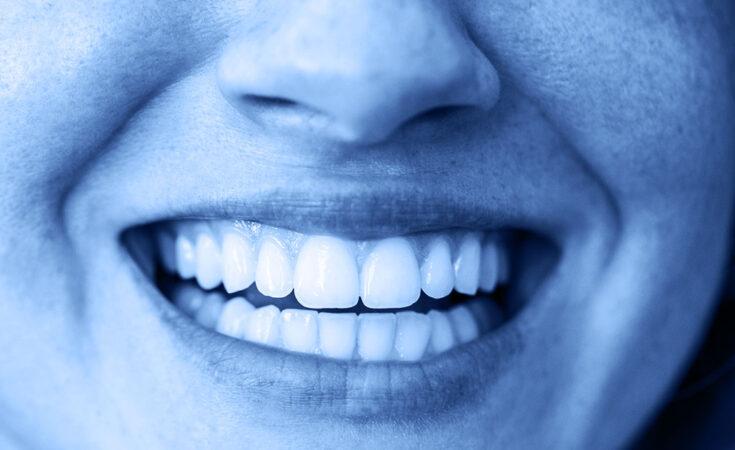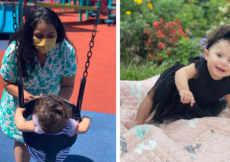
My aunt has never paid me a single compliment, but she’s always been quick to dole out negative commentary. One particular statement that stands out is when she told me, “I hope you never have kids.” More on that later.
That said, there was one thing I was good at in her eyes—writing. After helping her daughter with her college admission essay, my aunt offered me the closest thing I’d heard to a kind statement: “I hope you do something with this one day.”
Why am I sharing this story? Well, contrary to her wishes, I did go on to have kids—two of them, in fact. Yet, behind the bright image of motherhood I’ve painted on social media lies a darker truth, which is that I battled crippling postpartum depression.
Postpartum depression can initially be dismissed as “the baby blues.” Maybe you did a quick Google search after your own delivery to find out why you were crying at the drop of a hat and read an article or two about it. Most likely just hormones, the articles say; they’ll level off soon.
But what happens when instead of tapering off, they snowball? When someone tells you you’re not adjusting well to motherhood, or when you’re told your baby is “so easy” after a person has one brief interaction with him when he had cried for 18 hours straight the day before?
In my experience, you withdraw. Outside interaction only reinforces your fear that you’re doing it wrong. You put your colicky baby in a carrier, and you walk back and forth down the hallway, welcoming your partner home from work with hollow eyes. He says you’re a shell of who you used to be.
“Shell’ is the perfect word to describe it, you think. Fragile, about to crack. Then you read some more, holding onto hope that it truly does get easier after the newborn phase. You put on a happy face on social media so everyone thinks you’ve got it all together, not realizing it’s making other new moms secretly wonder why they’re falling apart.
That’s the problem with social media: you’re comparing the reality of your life to everyone else’s highlight reel. I look at the pictures I posted of my son as a baby, and I can see right through the “lighthearted” commentary.
Caption: Fast asleep now after being up all night!
Translation: I am mentally and physically exhausted.
Caption: Silence, I say! (cute photo with mustache pacifier)
Translation: His screams are making me want to scream.

On the posts went, until one day, I truly couldn’t do it anymore. I wanted to drive away and start over. Instead, I made the best decision I’d ever made and drove to my doctor’s office.
I couldn’t speak when I arrived because the lump in my throat was choking me. That fragile shell had officially shattered.
My doctor looked at me, not batting an eye, and told me I had postpartum depression. I didn’t, I explained. It’s not that I wanted to hurt my baby or myself; I just wanted my life to go back to how it used to be.
Then I realized postpartum depression isn’t what it looks like in the movies. Sometimes, it looks like a beautiful series of baby photos on a mom’s social media page because she feels isolated and wants to connect. Other times, it looks like your teary-eyed, beaten-down reflection in the mirror.
I knew postpartum depression was likely to hit again when I had my daughter a few years later, and sure enough, it buried me like a ton of bricks. I didn’t want to see anyone, so I made excuse after excuse to isolate myself. Visitors would come over and compliment my organized home, oblivious to the fact that I’d only moved the cluttered mess off the floor and into my mind.
The second time around, I saw the dark cloud looming, and I didn’t fight it. I got the help I needed to make sure I enjoyed her babyhood. This was my last shot; I wouldn’t miss that joy again.
Help can come in many forms. It can mean therapy, medication, or just letting go of the facade and getting those suppressed feelings out. You need to find what works for you, and sooner than later, for your own well-being.
Now, let’s get back to my aunt. If you’re reading this, I’m sorry. I went against your wishes and had kids. Some days I fall short, and they say I’m not their friend anymore. Most days, I’m their comfort, their storyteller, their boo-boo kisser, and their whole world.
Still, you’ll be pleased to see I did follow one piece of your advice. I’m writing this article to let other moms know they’re not alone in feeling overwhelmed by the huge life change that is motherhood and to offer a listening ear to them when the role feels too trying.
Thank you for telling me to “do something with this.” If the words I’ve written help even one person who’s reading, that has become the most important statement you’ve ever made to me.


































